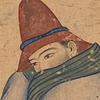Take a photo of a barcode or cover
dark
emotional
reflective
sad
slow-paced
Plot or Character Driven:
Character
Strong character development:
Yes
Loveable characters:
Complicated
Diverse cast of characters:
No
Flaws of characters a main focus:
Yes
dark
emotional
sad
medium-paced
Plot or Character Driven:
Character
Strong character development:
No
Loveable characters:
No
Flaws of characters a main focus:
Complicated
I had originally dropped this book finding myself struggling to care about anything regarding this book. I decided to pick it back up and somehow ended up getting lost in Mishima’s beautiful prose, from there I couldn’t put it down.
challenging
slow-paced
Plot or Character Driven:
Character
Strong character development:
Yes
Loveable characters:
No
Diverse cast of characters:
No
Flaws of characters a main focus:
Yes
This reminded me of another Japanese book set at the end of the Meiji period, "And Then" by Natsume Soseki. Both novels feature a young, handsome, narrator, who is inclined to laziness, vanity and selfishness. Both feature a love triangle of sorts. Both concern the clash between traditional and modern Japan.
That is where the differences end. Soseki´s prose is sparse and elegant, the descriptions of setting and nature not overwhelming the narrtative momentum. Mishima (and this is a criticism of all of his work) often gets too bogged down in overly metaphorical descriptions of landscapes, which slows the novel down significantly. Whilst thematically these descriptions are often relevant, for me they come far too regularly to be truly effective. Because Soseki often kept it quite spare, only occasionally lapsing into figurative description, it was therefore all the more powerful when it did happen, because the reader wasn´t being exposed to it every page or so.
That is not to say that this novel doesn´t contain moments of brilliance, and a truly memorable storyline. It does. It´s just that for some reason, I have never been able to shake the opinion that Mishima the man is more interesting than Mishima the author. And nothing that I´ve read so far has managed to totally convince me otherwise.
That is where the differences end. Soseki´s prose is sparse and elegant, the descriptions of setting and nature not overwhelming the narrtative momentum. Mishima (and this is a criticism of all of his work) often gets too bogged down in overly metaphorical descriptions of landscapes, which slows the novel down significantly. Whilst thematically these descriptions are often relevant, for me they come far too regularly to be truly effective. Because Soseki often kept it quite spare, only occasionally lapsing into figurative description, it was therefore all the more powerful when it did happen, because the reader wasn´t being exposed to it every page or so.
That is not to say that this novel doesn´t contain moments of brilliance, and a truly memorable storyline. It does. It´s just that for some reason, I have never been able to shake the opinion that Mishima the man is more interesting than Mishima the author. And nothing that I´ve read so far has managed to totally convince me otherwise.
decadent, sultry, yet terse & cold too—piercing in its melodrama & introducing the cycles of death & rebirth—resolutely anti-rationalist, anti-productive, celebrating a kind of squandering impulse, of sacrifice & excessive waste (bataille), a refusal of capitalist logic & also the assumptions of the ‘historical novel’—loved the dreams, the descriptions, the scenes, the discussions of hossō/yuishiki (fa-hsiang/yogācāra) buddhism, the wry humour & how precise & structured everything is once the centrality of the wang wei poem is revealed, it’s hard not to read it all thru it—left me curled up on my bed, awash in its calmly devastating ending, languid melancholy, affirming of the passionate sloth.
The Great One is near the Heavenly Capital,
Where lines of mountains lead down to the edge of the sea:
The white clouds, when one turns back to gaze at them,
merge together,
The blue haze, when one peers into it, reveals Nothing.
These peaks are divided by different heavenly influences,
In their degree of shadow or light each valley is unique.
If you would seek a place to stay here,
You must inquire of the woodcutter across the sea.
(Wang Wei, The Chung-nan Mountains)
The Great One is near the Heavenly Capital,
Where lines of mountains lead down to the edge of the sea:
The white clouds, when one turns back to gaze at them,
merge together,
The blue haze, when one peers into it, reveals Nothing.
These peaks are divided by different heavenly influences,
In their degree of shadow or light each valley is unique.
If you would seek a place to stay here,
You must inquire of the woodcutter across the sea.
(Wang Wei, The Chung-nan Mountains)
in real life we would hate one another (im a leftist) but through literature we're united
dark
emotional
sad
medium-paced
Plot or Character Driven:
Character
Strong character development:
Complicated
Loveable characters:
No
Diverse cast of characters:
No
Flaws of characters a main focus:
Yes
emotional
tense
medium-paced
Spring Snow can be a bit of a drag at times (a long, meandering narrative, and Mishima has a tendency to delve DEEPLY into his characters' minds) but all in all it's a good book, a compelling story of a callow young character who very nearly reads as an antihero (though ultimately emerges as something different). The ideas of action and inaction--as well as love--are interesting, as is the portrait of early 20th-century Japan. Most damning is the fact that the book feels complete in and of itself--finishing it, you may feel slightly robbed, as though you were set up for something bigger and have been let down. If you persist with "Sea of Fertility" and make it into Runaway Horses, though, you will be WELL rewarded.





